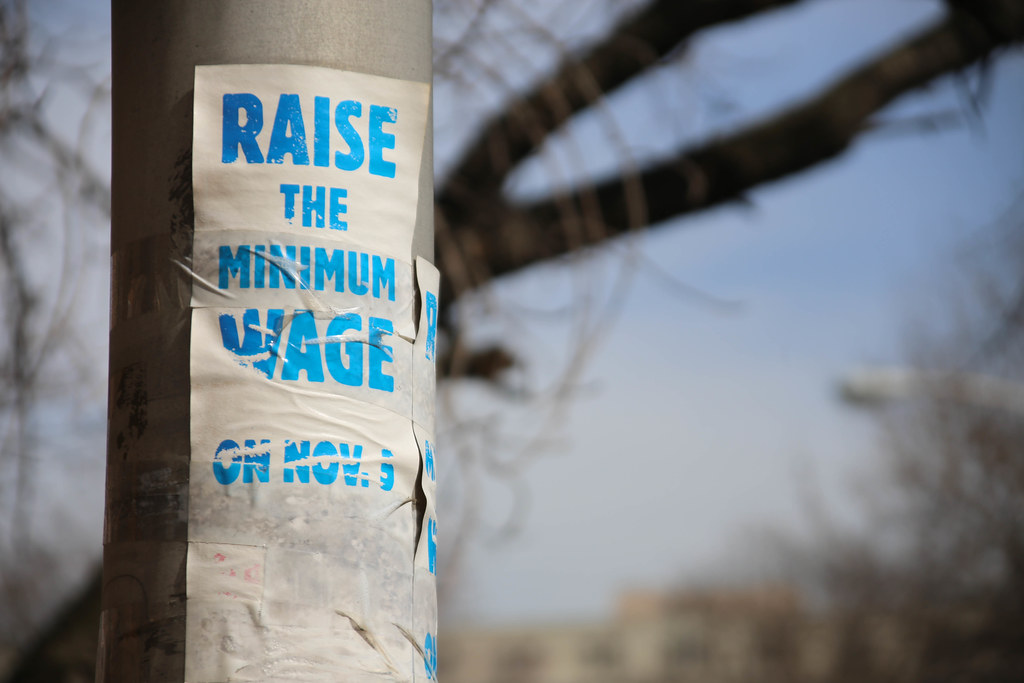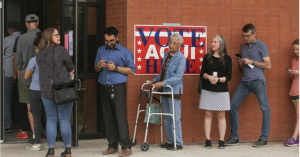by JC Dufresne
for the “Progressive Views” column, Boerne Star, January 10, 2020

Nearly half of all Americans workers age 18 to 64 hold low-wage jobs according to a recently released study by the Brookings Institute. Don’t let your MAGA-hat-wearing relatives and neighbors claim that’s all liberal propaganda—Brookings may lean slightly left on analysis but their data checks out every time. While even Texas, with one of the highest poverty rates and some of the lowest wages in the country, has seen a reduction in the percentage of workers earning minimum wage in the last couple of years, the fraction of workers earning near poverty-level wages hasn’t shown any improvement.
Nearly six in ten low-wage workers work full-time, year-round. One in seven have a bachelor’s degree and more than four in ten have children. When I was a teenager in the late 70’s, about 48% of teenagers worked year-round now. That’s down to less than 30% today so don’t let anyone tell you that low-wage jobs are just for kids or that it’s just for part-time workers and the uneducated.
After inflation the federal minimum wage has dropped 17% since 2009 and 31% since 1968. Workers earning the federal minimum wage today have $6,800 less per year to spend on food, rent, and other essentials than did their counterparts 50 years ago. A minimum wage worker in 1968 earned the equivalent of $10.54 in today’s dollars; that’s more than nearly quarter of today’s entire workforce earns.
Analysis by the Pew Research Center shows 19.8% of U.S. adults ages 65 and older or nearly 10.5 million people reported being employed full- or part-time, likely because they were unable to save for retirement due to low wages. Older workers represented 6.6% of all employed Americans last July; that’s more than double the 3% in July 2000. Workers over 55 are a much larger fraction of the workforce than in July 2007, just before the Great Recession generated mass unemployment. Employment rates have returned to pre-recession levels for adults younger than 55 but not increased like rates for older workers. Currently workers aged 65-72 are working or looking for work at a rate 50% higher than workers the same age in prior generations.
After inflation, wages for the working-class Americans are still below pre-recession levels. While worker productivity sharply increased, total income for working class families has been falling since 1979 all while corporate profits shot up. This includes wages for college graduates, whose hourly wages have dropped significantly since 2000, according to the Economic Policy Institute.
It is way past time for the United States to increase the minimum wage. We can argue about how much it should be but there is no excuse not to at least restore it to 1968 levels and while we’re at it index it to inflation so low wage workers don’t keep getting the short end and have to fight the same battle over again every decade. Texas could raise the state minimum wage like quite a few others have, but Republicans here are averse to data-driven decision making so they refuse to acknowledge that those states which have raised minimum wage are doing better than those which did not. Frankly I’d settle for the state legislature repealing the law that prohibits cities from setting their own minimum wages. We could then watch the results of come cities raising theirs while others don’t and see which overall economy does better.



